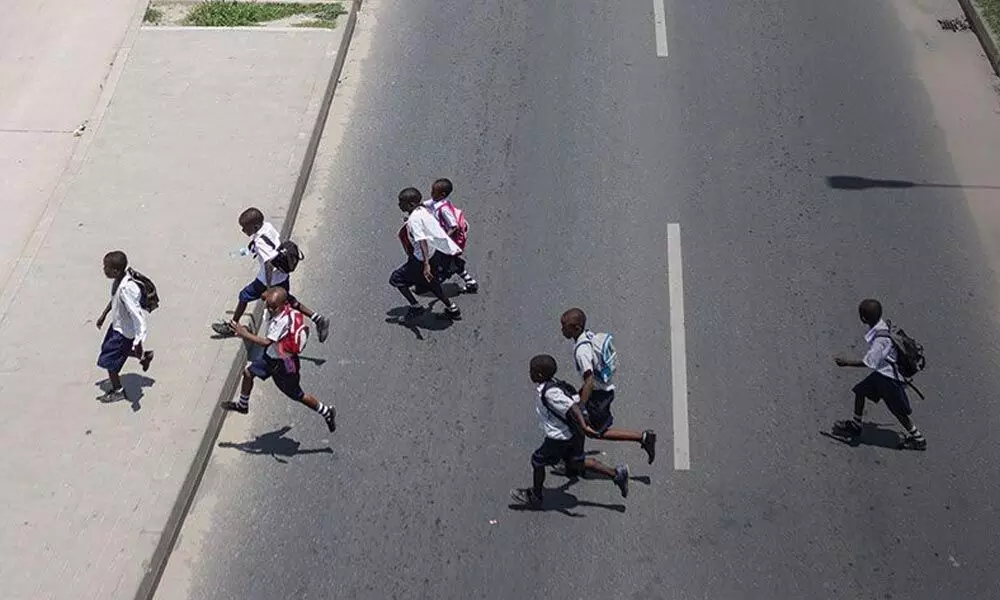30 States use IIT Madras' data-driven model to make roads safer

30 States use IIT Madras’ data-driven model to make roads safer
Non-fatal injury data is unreliable and biases are implicit in which cases get recorded: IIT Delhi
New Delhi: Over 32 states and Union Territories in the country have come on board for using a data-driven model developed by the Indian Institute of Technology (IIT) Madras to help them make theirroads safer and improve emergency response as well as trauma care. With road safety experts citing quality data crunch as a major roadblock in policy making and implementation in India, the model has been officially adopted by the Ministry of Road and Transport with funding from the World Bank.
The IIT team has signed up MoUs with the state governments to help them develop a road map towards reaching the SDG goal of 50 per cent reduction in road fatalities by 2030 and eventually to zero deaths from road traffic accidents. The team will also help states build strategies and implementation work packages for all stakeholder departments to work on safe roads and help build a data driven trauma care with institutional registry. According to Venkatesh Balasubramanian, Professor at Department of Engineering Design, IIT Madras, initially the project was launched on a pilot basis with six states with highest fatality rate in road crashes. The six states are Karnataka, Madhya Pradesh, Maharashtra, Rajasthan, Uttar Pradesh and Tamil Nadu.
"However, as many as 27 states and five Union Territories across India are in various stages of implementing Integrated Road Accident Database (iRAD) now. At least 11 states and one Union Territory have already started live data collection using iRAD," Balasubramanian told PTI. Under the project, a mobile application has been developed which enables police personnel to enter details about a road accident, along with photos and videos, following which a unique ID is created for the incident. Subsequently, an engineer from the Public Works Department or the local body will receive an alert on his mobile device. He or she will then visit the accident site, examine it, and feed the required details, such as the road design.
"Data thus collected will be analysed by a team at IIT-Madras which will then suggest if corrective measures in road design need to be taken. Road safety is a collective responsibility of all the stakeholders. "Therefore, it is quintessential to develop a good strategy based on data. It is, therefore, necessary to have a design thinking approach to solve the problem by not just identifying the issues but implementing changes that are sustainable in the local conditions," he said. The World Health Organisation classified India's official data on road traffic fatalities as "unusable" or "unavailable" because of "quality issues" in the Global Health Estimates released in December 2020. A recent study by IIT Delhi had pointed out that the non-fatal injury data in India is unreliable and the biases implicit in which cases get recorded. Road safety experts have also pointed out that the government data on road crash deaths are not complete because the data reporting process of the police departments is flawed, there is significant under-reporting especially in rural India, and not enough public trust in the police.
According to Road Transport and Highways Minister, Nitin Gadkari, the dream for India to be a five trillion economy will be met only when we can have safe roads for movement of goods and humans across the country in a timely manner. "While we have been consistently meeting and performing above our targets for laying roads, we continue to be dampened by the loss incurred in the form of accidents.














